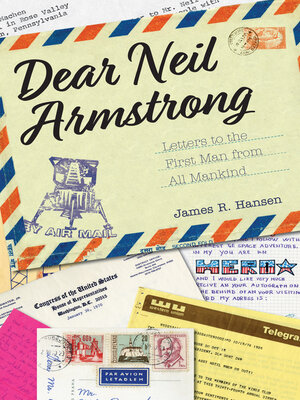Dear Neil Armstrong
ebook ∣ Letters to the First Man from All Mankind · Purdue Studies in Aeronautics and Astronautics
By James R. Hansen

Sign up to save your library
With an OverDrive account, you can save your favorite libraries for at-a-glance information about availability. Find out more about OverDrive accounts.
Find this title in Libby, the library reading app by OverDrive.



Search for a digital library with this title
Title found at these libraries:
| Library Name | Distance |
|---|---|
| Loading... |
In the years between the historic first moon landing by Apollo 11 on July 20, 1969, and his death at age 82 on August 25, 2012, Neil Armstrong received hundreds of thousands of cards and letters from all over the world, congratulating him, praising him, requesting pictures and autographs, and asking him what must have seemed to him to be limitless—and occasionally intrusive—questions. Of course, all the famous astronauts received fan mail, but the sheer volume Armstrong had to deal with for more than four decades after his moon landing was staggering.
Today, the preponderance of those letters—some 75,000 of them—are preserved in the archives at Purdue University in West Lafayette, Indiana. Dear Neil Armstrong: Letters to the First Man on the Moon publishes a careful sampling of these letters—roughly 400—reflecting the various kinds of correspondence that Armstrong received along with representative samples of his replies. Selected and edited by James R. Hansen, Armstrong's authorized biographer and author of the New York Times best seller First Man: The Life of Neil A. Armstrong, this collection sheds light on Armstrong's enduring impact and offers an intimate glimpse into the cultural meanings of human spaceflight. Readers will explore what the thousands of letters to Neil Armstrong meant not only to those who wrote them, but as a snapshot of one of humankind's greatest achievements in the twentieth century. They will see how societies and cultures projected their own meanings onto one of the world's great heroes and iconic figures.







